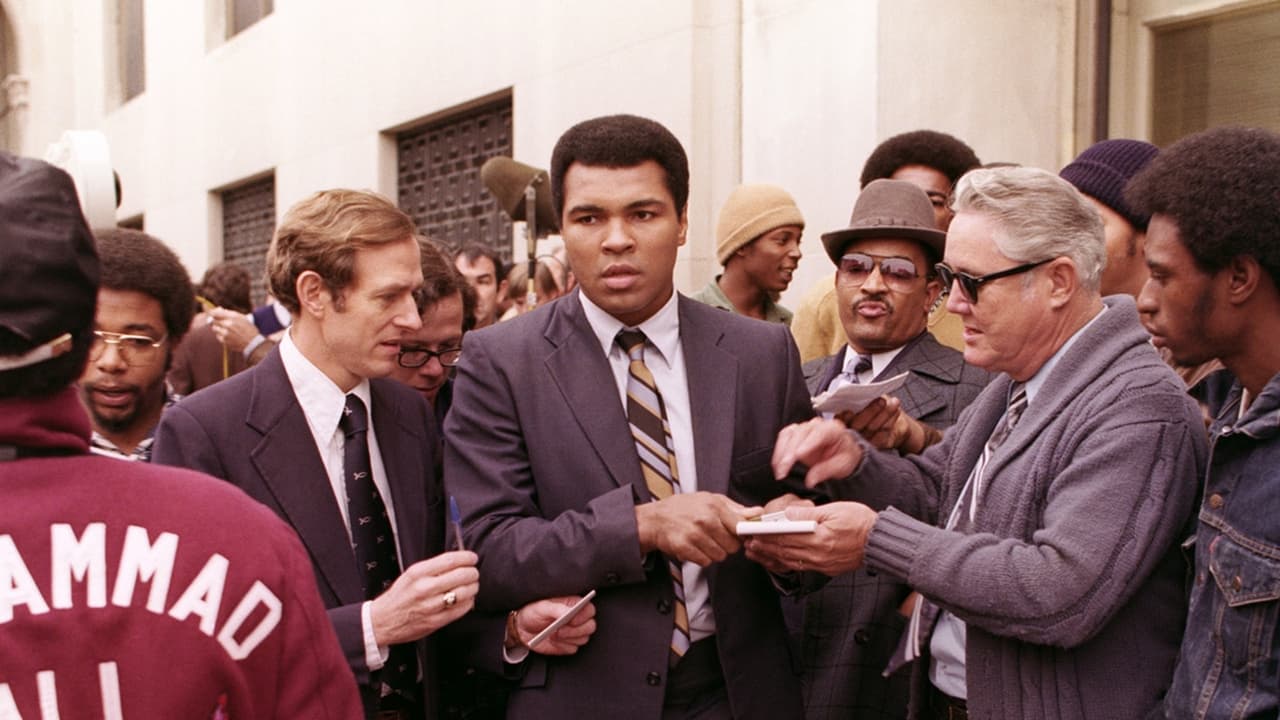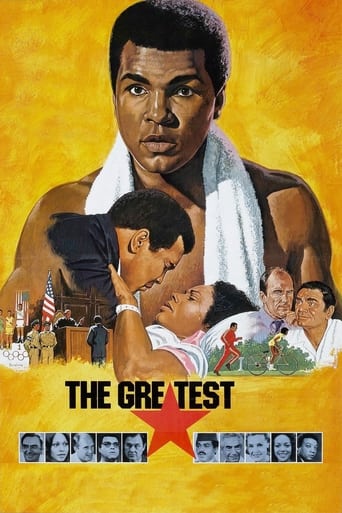

People are voting emotionally.
... View MoreInstead, you get a movie that's enjoyable enough, but leaves you feeling like it could have been much, much more.
... View Moreif their story seems completely bonkers, almost like a feverish work of fiction, you ain't heard nothing yet.
... View MoreThe biggest problem with this movie is it’s a little better than you think it might be, which somehow makes it worse. As in, it takes itself a bit too seriously, which makes most of the movie feel kind of dull.
... View MoreAfter seeing several disappointing biopics featuring Ali I have no fear in saying this is one of the better movies featuring the great man . The film is helped by a script that tells of young Clay`s struggle against prejudice and discrimanation without going overboard , and the script to its credit doesn`t concern itself with deep discussions of Ali`s psyche unlike a few movies I could mention , here the script just concentrates itself with hard facts . By a strange irony the film is less effective when Ali appears playing himself but that`s probably down to Ali having a bit too much fun reliving his past like turning up at Sonny Liston`s house at the dead of night to throw insults , but you can`t really blame Ali for enjoying himself , he was a remarkable man who had many remarkable moments in his life You probably won`t learn anything new about Ali watching this film , but you can be certain that it`s all true
... View MoreMaybe the producers of this film thought it would be highly original to have Ali play himself. I can picture them sitting down and saying that really there is no actor who could do this man justice (this was before Will Smith was born!). However, Ali just couldn't act. Its sad watching him play himself as a young man when he's so obviously overwieght older and out of shape. Also I think that at the time this film was made, he was beginning to develop Parkinsons. His speech was already becoming slurry. The filmakers surround Ali with a professional cast of actors like James Earl Jones and Ernest Borgnine as Angelo Dundee, but Ali just wasn't right for this. Maybe this is one film that should never have been made. The lead up to the climatic Rumble in the Jungle with Foreman where he regains the title is done very well, it shows him training and running. They show quite a bit of footage from Ali's fights which is fine because they are from his best fights, the only thing is they keep playing the same damn music OVER AND OVER for them! It got kind of irritating. It was thrilling though in the end when Ali went up against the younger and stronger George Foreman and beat him in a stunning upset by using that "rope a dope" strategy. The final words of the film are of the fight commentator when he says "Foreman goes down, Muhammad Ali has done the IMPOSSIBLE! He has regained the Heavyweight Championship of the World"
... View MoreThe saddest thing about this film is that the script simply didn't have a feel for Ali's poetry or style...what results is a low-energy, plodding plot with remarkably bad switches from fight scenes to scripted bits. A good movie to break in your fast forward button from fight scene to fight scene. Also look for a forty-something Ferdie Pacheco played by a 70+ year-old actor...remarkable.
... View MoreAli plays himself impressively in this biography of his remarkable boxing career. The greatest commands the screen alongside such actors as Robert Duval, Ernest Borgnine and James Earl Jones. The film is not as powerful, moving or exciting as it could have been and so is a slightly disappointing dramatization of a legendary boxing story. But, of course, just to see Ali doing what he does best (entertaining out of the ring as well as in) is a must for most. So, see it.
... View More